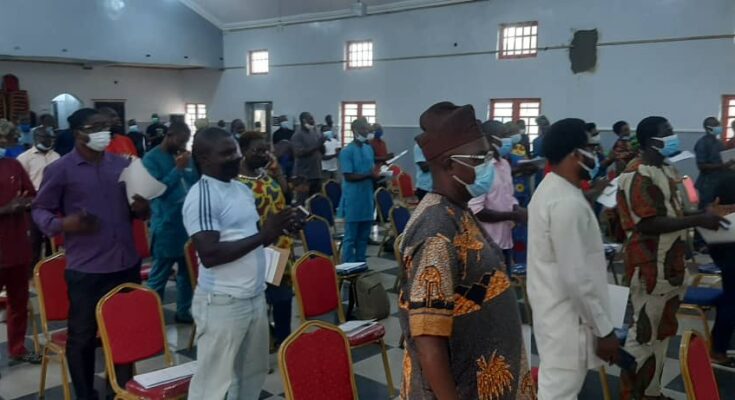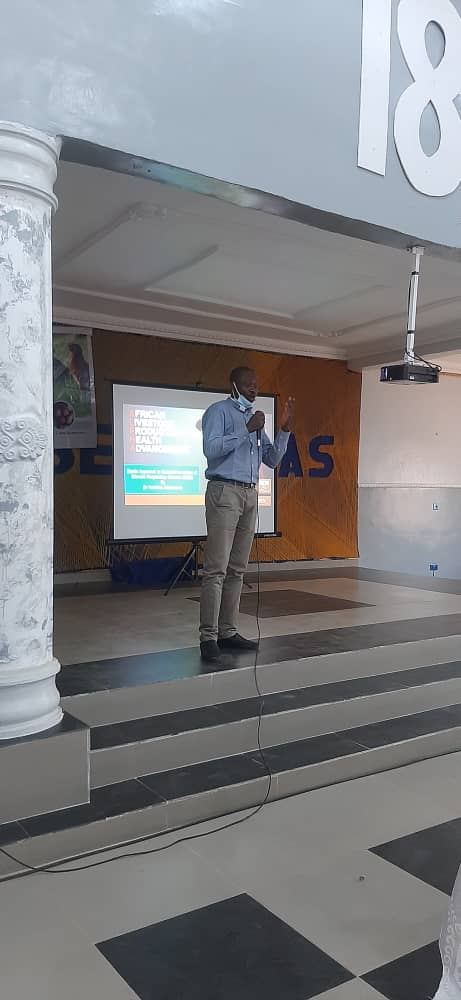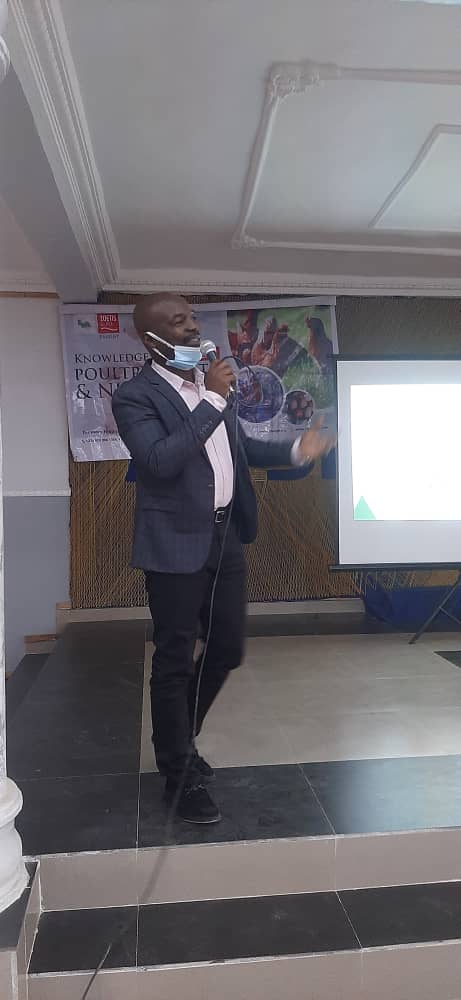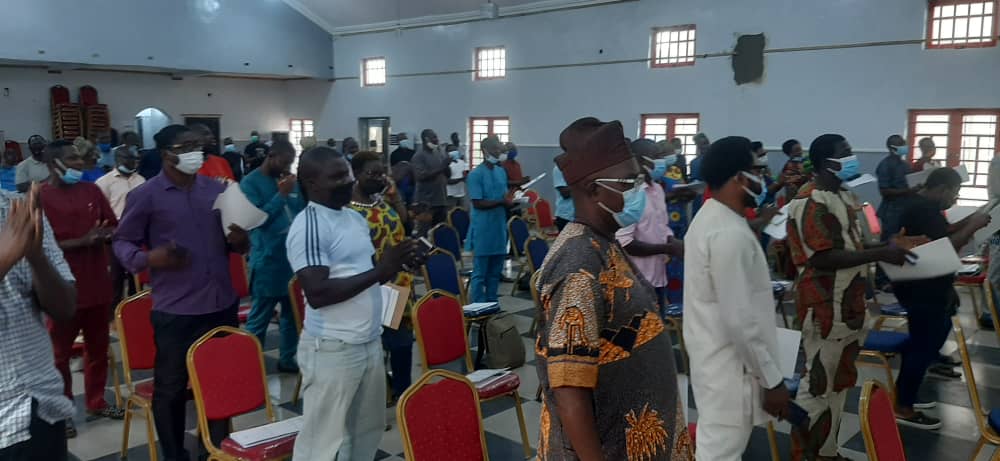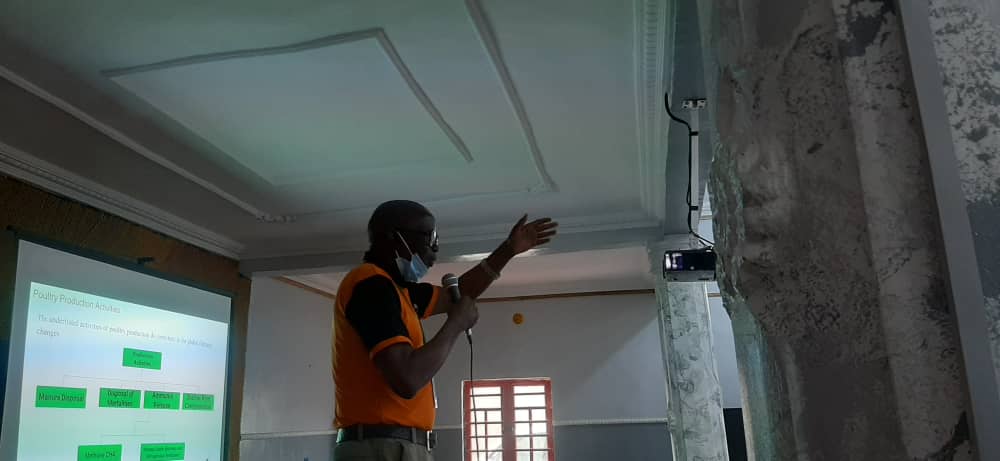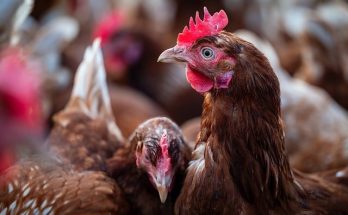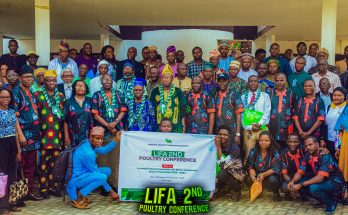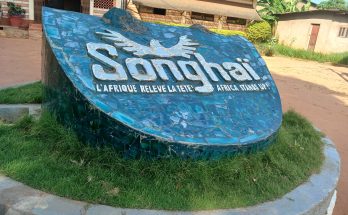The Knowledge Update on Poultry Health and Nutrition is a one-day training workshop that was organized by Livestock Industry Foundation for Africa (LIFA) in collaboration with Zoetis Alpha Initiative for poultry farmers and stakeholders in the Livestock Industry in Mowe, Ogun State on 26th May, 2021. The training took place at Castle Hall, No 12, Ibukunoluwa Street, Asolo, Bus Stop, Ofada Road, Mowe, Ogun State, Nigeria.
The initiative aims at improving Livestock Health and positively impact farmers Livelihoods in Sub-Sahara Africa. The collaboration was organized to support local veterinary stakeholders and farmers with professional education and entrepreneur skills development via face-to-face training.
The knowledge update on poultry health and nutrition held in Mowe Ogun State recorded 130 participants by physical training and an online live Facebook (Virtual) session was organized while the programme is ongoing which reported over 90 viewers (kindly click on the link https://fb.watch/5T8gaQVfLQ/ and https://fb.watch/5T8ilK7QPV/ to watch the event). The programme was a great success which was attended by many dignitaries; Chairman Poultry Association of Nigeria, Ogun State Chapter in person of Engr Idowu Asenuga, Former PAN Chairman Ogun State Chapter, Ogun State PAN Secretary, Mowe PAN Zonal Chairman (Mr Lawal), Oyo State PAN Editor, Representative from the ministry and many other dignitaries were present in the event.

The programme started with an opening prayer from one of the participants. This was followed by a welcome address from Ogun State PAN Chairman; Engr. Idowu Asenuga. In his speech, he acknowledged the support of LIFA and Zoestis towards the development and improvement livestock industry in Nigeria. LIFA president; Dr Stephen Adejoro, in his welcome Address, appreciate the support of PAN executive for their team support and applauds the impact of Zoetis over the years of partnership with LIFA for her selflessness contribution to the good of the poultry industry.
Dr Niyi Bankole representing Mr. Joshua Olorungbemi briefly explain who they are (Zoetis) to the participants and commend LIFA great work over the years of partnership with Zoetis. He introduced the Zoetis team in Nigeria; Mr Joshua Olorungbemi (Country Lead), Dr Adah Ogwuche (Field Vet/Ruminant Product Manager), Dr Kehinde Adebowale (Field Vet/Poultry Product Manager) and Dr Niyi Bankole (Field Diagnostic Manager).
The first speaker was Dr Kehinde Adebowale, the Field Vet/Poultry Product Manager of Zoetis Alpha. He delivered a lecture on Zoetis Approach to Control/Prevention of Chronic Respiratory Disease (CRD). He explained the basic information about Mycoplasma, the aetiology, species affected, mode of transmission in poultry birds to the respondents. In his presentation he explained experimentally that infected poultry develop symptoms after 6 – 21 days while in the natural infections, the incubation period is variable; infected birds may be asymptomatic for days or months until stressed. The morbidity and mortality were also emphasized of which he reported that chickens with uncomplicated infections, the morbidity rate is as high as 100% and mortality can be up to 30%. The critical signs of the disease on infected chickens are respiratory symptoms that include depression, rales, coughing, sneezing, nasal discharges, dyspnea, poor FCR and decrease egg production. He concluded that the prevention and control measure could be the use of proper biosecurity measures and the use of Zoetis vaccine for MG (Live vaccines or Killed vaccines).
Dr Stephen Adejoro was the second speaker and his presentation centered on Effect of Climate Change on Poultry Health and Food Security in a Tropical Climate; A Case Study of Fowl Cholera. he defines climate changes as the summation of all statistical distributions of the state of the atmosphere on a scale of; coldness, wetness, dryness, hotness, windiness, cloudiness, etc. He highlights out the international panel opinion on climate change; direct effect of greenhouse gases, human activities of pollution, deforestation, fossil fuel burning and poultry production activities. In his presentation he explained that the poultry production activities (manual disposal, disposal of mortalities, ammonia release, shallow river contamination) do contribute to the global climatic changes. His presentation also investigated the epidemiology, chemotherapy and dietary management of fowl cholera in humid tropical climate. He pointed out that swollen wattles, swollen foot, swollen joint, swollen ear, facial swelling are critical signs of fowl cholera in poultry birds. He concluded in his presentation that fowl cholera is a chronic disease of poultry, could linger on through the life cycle of a flock when endemic, often occur in a cycle of 12 weeks starting from age 26 to 28 weeks, and damage the liver. He then suggested that effective treatment of fowl cholera must be a synergy of chemotherapy and dietary adjustment.
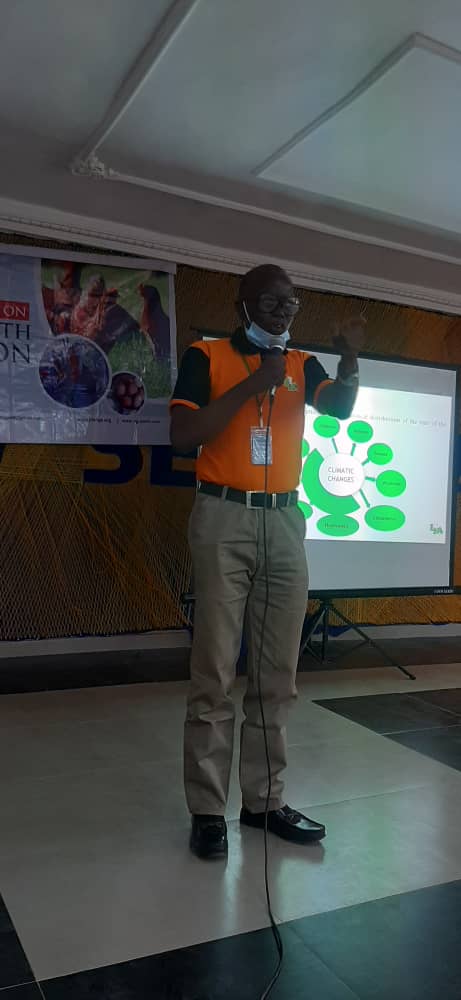
The third speaker; Dr Niyi Bankole delivered a lecture on the Journey towards antibiotics free poultry production (Gut health & proper vaccination). He discussed that the antibiotic free production is only feasible in a stepwise manner; ensuring quality of all inputs and updated knowledge on health and managemental practices. He then explained gut and its function, gut health and the importance, performance vs immunity, the negative drivers of poor gut health, vicious cycle of enteritis, proper vaccination and gut health management. He concluded that the focus areas of gut health management are; oral tolerance, good nutrition, coccidiosis control, gut microbiota modulation and good vaccination protocol and monitoring.
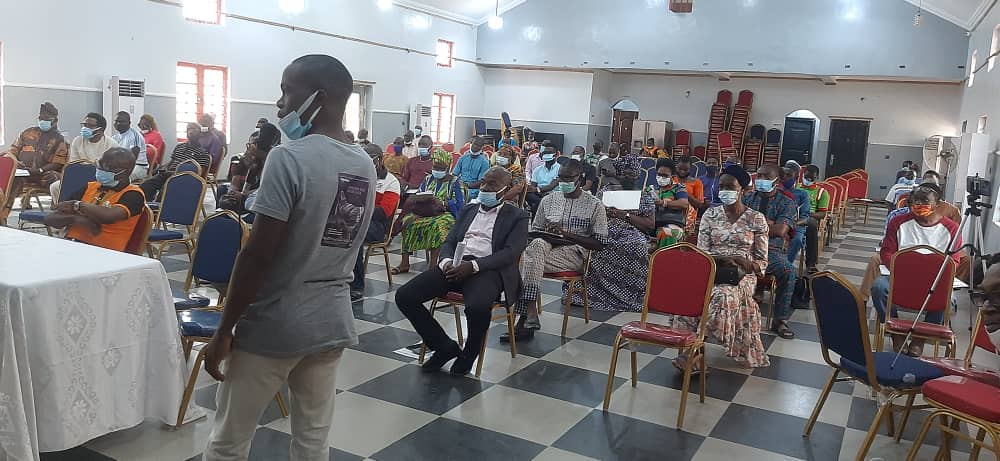
Dr Adegbaju; the fourth speaker delivered a lecture on the Nutritional Approach to Poultry Gut Health Management. He defines nutrition as the digestion and absorption of feeds and utilization by body for growth/egg production and replacement of cells. He reported that the primary function of the gut is the conversion and digestion of feed in to its basic components for absorption and utilization by the bird. In his presentation he emphasized that a healthy chicken’s gut is essential for optimum digestibility, maximum nutrient absorption, immunity development and disease resistance. He also reported that the use of multi enzyme combinations like NSpases and protease to effectively combat the negative effects of the anti-nutritional factors will result in improved gut health and performance. He concluded in his presentation that the nutritional approach to improved gut health are; good quality feed and water, optimizing digestion absorption of nutrients, optimizing gut microdata and improving gut integrity.
Kindly click on the link below to download the presentation slides:
https://drive.google.com/drive/folders/15BEnd54x0-7ZwXP2UeTyJHNDC_Rk89VX?usp=sharing)
Discussion on the Situation Analysis of Avian Influenza Outbreaks in Nigeria; was presented by Dr Adejoro. LIFA research findings shows that the outbreak is very obvious in the economy of Nigeria. He then concluded in his presentation that for Nigeria to prevent the fast spread of AI then there must be a practice of ring vaccination immediately an outbreak is announced in a state. LIFA likewise recommended that a mixed strategy for the category of poultry investors exempted from the new government policy should be allowed to incorporate the use killed vaccination to the AI stereotype found in Nigeria as a mixed strategy for AI prevention and that such vaccine must be approved by veterinary department, Ministry of Agriculture prior to any importation and NAFDAC notification of such approval must be a part the import policy.
In conclusion, questions and answers were brought to the board and many participants asked various questions related to the lectures and outside the lectures presented. All participant’s questions were answered by each of the speakers.
LIFA will continue to be proactive in organizing trainings for Livestock Farmers/Stakeholders towards improving the Livestock Industry in Nigeria and Sub-Sahara Africa. We are available for collaborations in areas that may require education,training, advocacy, awareness and policy implementation.


